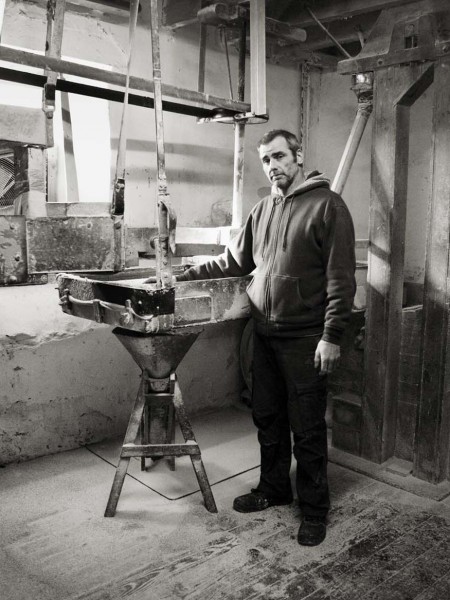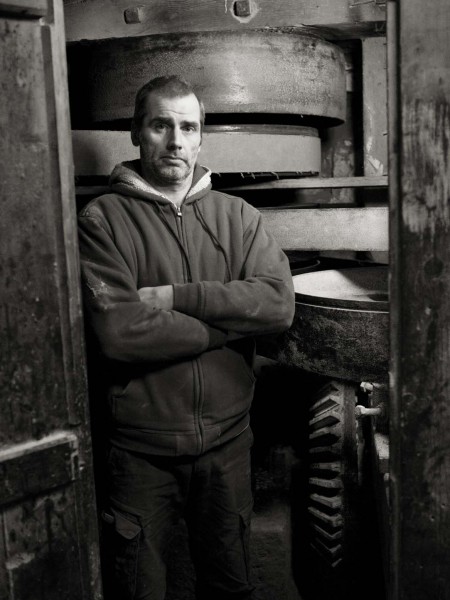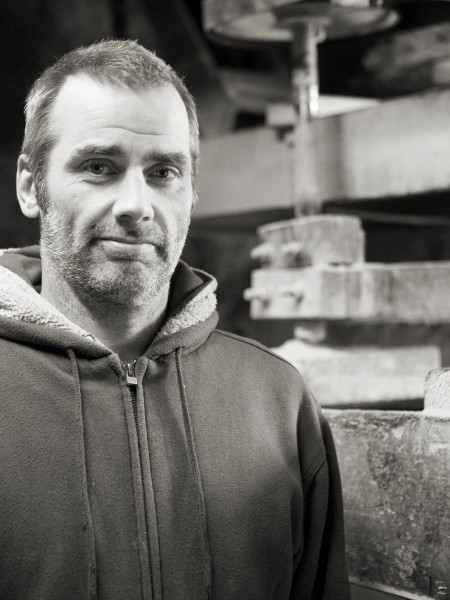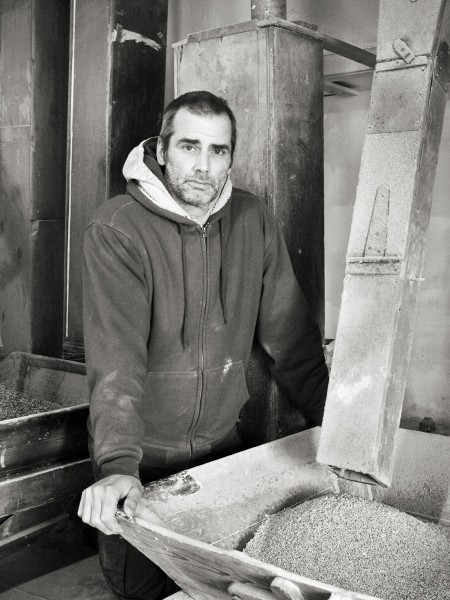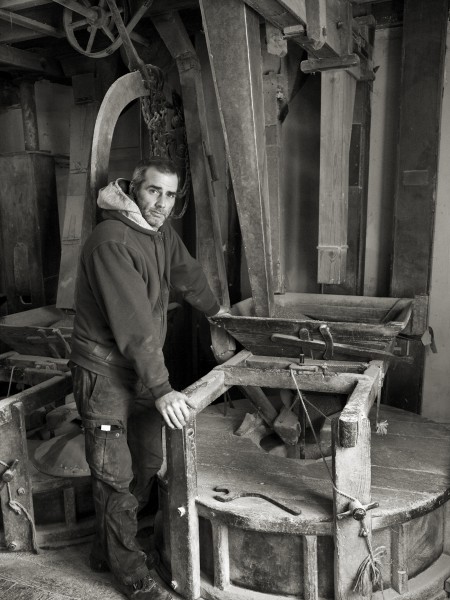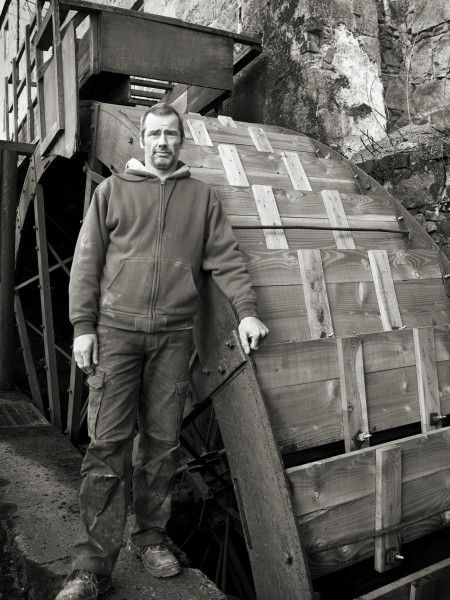Q. What is your principle professional skill?
A. Meal Miller at Montgarrie Mill, Alford
Q. Can you tell us a little about it?
A. In milling the oats a lot of the skills I use at the mill go back at least until Roman times and probably even before that. There have been a few changes over the years, mainly during the industrial revolution. We have three sets of millstones which split the work into different processes, making cleaner oatmeal. Older mills would have normally only had one set. The invention of the endless belt cup elevator in the nineteenth century did away with the need for so much manual labour and speeded up the process.
Q. How long have you been practising your skill?
A. Nine and a half years.
Q. How did you learn your skill?
A. I’m self-taught, learning on the job at the mill.
Q. How long did it take?
A. About 5 years until I was fully comfortable with it, although I find I’m still learning new things from time to time.
Q. Are there any other people in the region doing what you do?
A. Not in the traditional way, as far as I know.
Q. How important do you think your skill is for the region?
A. I think it is quite important. Oatmeal has a strong tradition in Scottish cuisine and it stayed on in Aberdeenshire when other regions gave it up for other foodstuffs. Some Aberdeenshire farm workers were still paid with oatmeal up until the 1950s.
Q. How has your profession evolved over the last few decades?
A. Not much. Going back say 70 years electricity was introduced.
Q. What are the main differences between now and when you started?
A. It’s still much the same.
Q. How do you anticipate the future to be for your skill?
A. Quite good. Mainly because this is the only place that does the oatmeal in this way, probably in the whole world. There used to be 40,000 water mills in the UK, now we are the only place milling oatmeal in this way on a commercial scale. We are also starting to make porridge oats and jumbo oat flakes which has a much bigger market.
Q. How important do you think it is to pass the skill on to the next generation?
A. Very important.
Q. How could that be achieved?
A. By training people. We are currently training John who is a Dryster, which is another skill in itself.
Q. Would you be prepared to train someone?
A. Yes I am doing, informally.
Q. Do you think that society should feel obliged to find a way of preserving such skills?
A. Not obliged, but it would be nice if they could. People have to be interested in a skill in order for it to be preserved.
Q. Does having a skill change the way you see the world?
A. Yes I think so. I started taking an interest in other places like this, in this area of history.
Q. What kind of rewards do you get from your skill, monetary and/or otherwise?
A. I like working when the mill is running well in the knowledge that it has been running in the same way for 140 years.
Q. What impact has broadband and the internet had on your work?
A. The mill has a website and people can buy oatmeal online. The oatmeal is shipped all over the British Isles and North America.
Q. How do you use the internet for your work?
A. To learn how to improve my skills. For example, not long after I started working here the millstones needed to be dressed and I hadn’t a clue how it was done. I learned how to do it from a website made by an American chap.
Q. What, if anything, could be done to help preserve your skills and support your profession?
A. To continue to market the oatmeal so that the mill still has an income.
www.oatmealofalford.com
